With Professor Lin Zhiping
Enter history, live history, write history
Interview Team/Xiaoston West China Church Li Yuzhen, Tian Lifen, Yu Jing, Lu Manyuan, Wei Zhaoan, Li Mei
Organizing/Li Mei
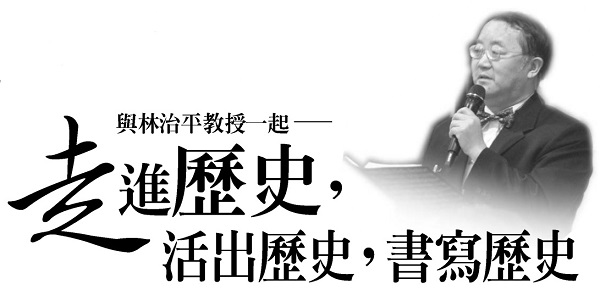
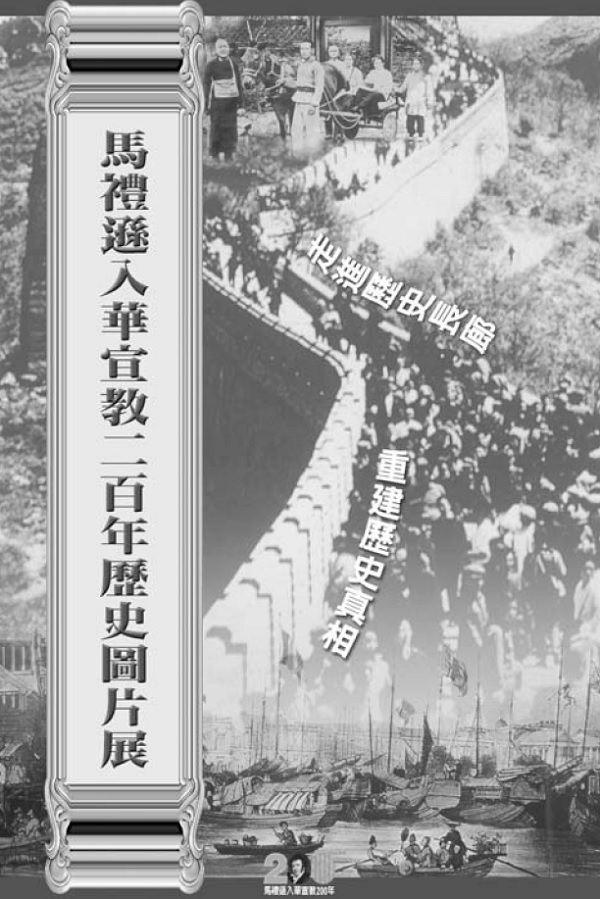
1807, Robert Morrison (1782-1834)
Arriving in Guangzhou, he became the first "Protestant" missionary to set foot in China, opening a new chapter in the history of Christianity in modern China.
In 2007, Lin Zhiping arrived in Houston, Texas, USA, and presented the "200 Years of Morrison's Mission to China" historical photo tour exhibition, inspiring the Chinese churches in North America to write a new page for missionary work.
Both of them inherit the causes of history and also convey the effects of history.
The call they received from God is to be "preachers"; they are all "pioneers" in their respective fields.
The winding and rugged historical road connects a British missionary and a Chinese scholar, and it will also connect you and me.
By understanding history, we understand this generation,
We also understand our own place in history.
Because you and I will write the history of the future.
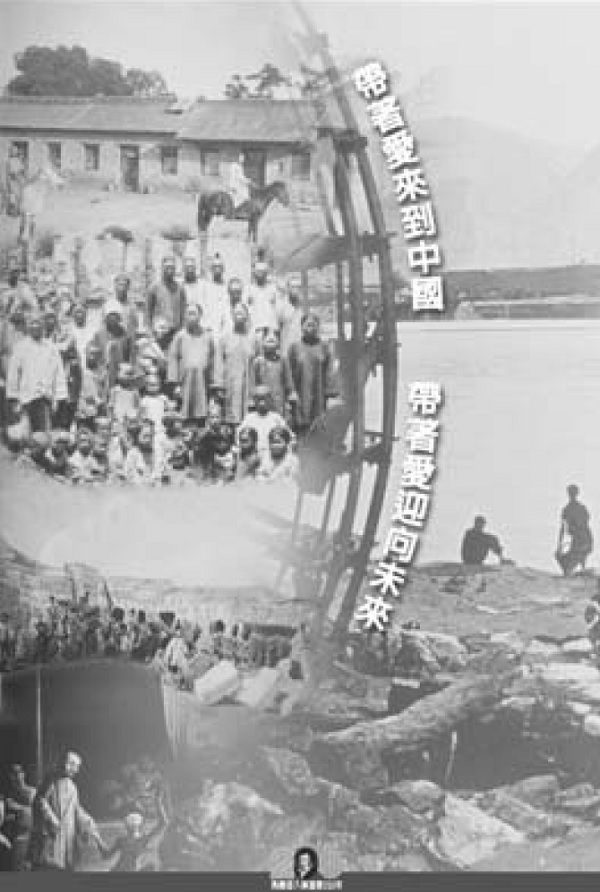
Lin Zhiping and his co-workers from the "Universal Light Holistic Care Organization" were invited to the Chinese Church in West District, Xiaoston, to display a historical wall map of "The 200th Anniversary of Morrison's Mission in China", and at the same time held a series of talks about life, culture, Lectures on music and mission.
During the tight schedule, Lin Zhiping gave a special interview to review the impact of Morrison's missionary mission in China, detail the experience of organizing this event, and analyze the Chinese church's responsibility for history.
First stop into history
Lin Zhiping, who was the dean of the School of Humanities and Education at Chung Yuan University in Taiwan and edited books such as "Christianity and China", "Whole Person Care - Rethinking Mission in the 21st Century", and "Changing History", came from Ma Li Xun arrived in Guangzhou in 1807 and led everyone in the venue into history.
It is difficult for pioneers to pioneer and lay the foundation for the missionary road
At that time, the Chinese government had strict regulations on foreigners coming to China: they were not allowed to learn Chinese, they were only allowed to stay in a specific "Guangzhou Thirteen Hanging Yi Hall", their families were restricted to live in Macau, and missionary preaching was strictly prohibited. Morrison was the first "Protestant" missionary to set foot in mainland China. He was unprecedented, and it was even harder than climbing to the sky! In order to live in Guangzhou justly, two years later, with his excellent bilingual skills in Chinese and English, he won the position of translator for the East India Company.
Morrison, who was employed by both the mission and the East India Company, was controversial and criticized both at the time and later. Professor Lin pointed out that history textbooks on both sides of the Taiwan Strait and three places mistakenly confuse missionaries in China with the imperialists who invaded China. He said with emotion: "Modern people pay attention to facts, but facts are not necessarily the truth." After a pause, he continued:
"Morrison was an employee of the East India Company, and the East India Company trafficked in opium. This is all true, but the fact is not the truth. The truth is that Morrison wanted to bring Christianity to China regardless of other people's misunderstandings, even if he was ruined. Even my wife and children were left without a burial place.”
Morrison went to China to work alone for six years, and the mission finally sent a colleague, Pastor William Milne (1785-1822). Unexpectedly, Mi Lian had no way to enter the country, so Morrison had to arrange for him to go to Malacca, Malaysia, while he stayed in Guangzhou and continued to fight alone. However, God had a good intention. They were stationed in the two places and still worked closely with each other. In Malacca, they actively planned and promoted the "mission plan beyond the Ganges", founded Yinghua College, and published the first Christian magazine, "Cha Secular Monthly Chronicles". 》.
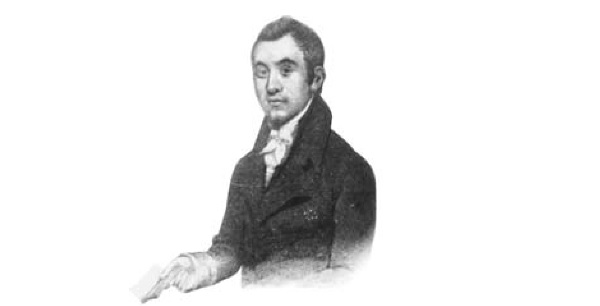
▲Although they are separated, Milton and Morrison still work together for the gospel.
This publication is a pioneer of modern Chinese newspapers and plays a role in promoting and promoting modern Chinese newspapers and printing industries. In 1814, Cai Gao, a worker who helped print the New Testament, was baptized by Morrison and became the first Chinese Protestant Christian. Later, Morrison ordained Liang Fa in Malacca and became the first Chinese pastor.
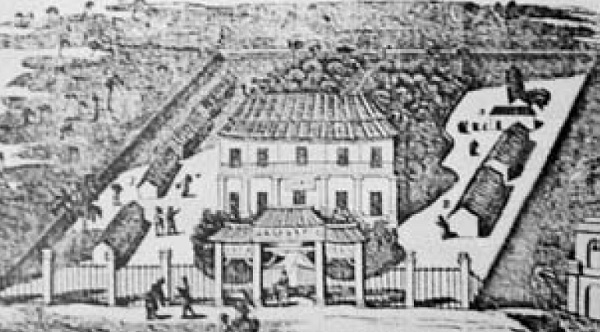
▲The teaching building of Yinghua College.
Diligently build cultural bridges and go straight to the benchmark
A British missionary who had only lived in China for more than 20 years was able to learn Chinese while working and translate the Old and New Testaments in the style of "Three Kingdoms". His perseverance is unparalleled. The "Hua Ying Dictionary" compiled by Morrison has more than 4,000 pages, covering all Chinese slang, slang, poetry, haiku, etc. His language control, translation skills and speed are incredible.
On March 24, 1824, Morrison returned to England with his masterpieces "The Old and New Testaments", "The Chinese-English Dictionary" and more than 10,000 Chinese books. These works undoubtedly made a significant contribution to the communication between Chinese and Western cultures. They also provided favorable conditions for the missionaries who were preparing to go to China to learn Chinese, and laid a solid foundation for Christian missionary work in China. Two years after returning to England, Morrison actively promoted the establishment of an Oriental Language School. He made speeches calling on the public to care about China's issues, taught Chinese enthusiastically, and worked tirelessly for missionary work in China.
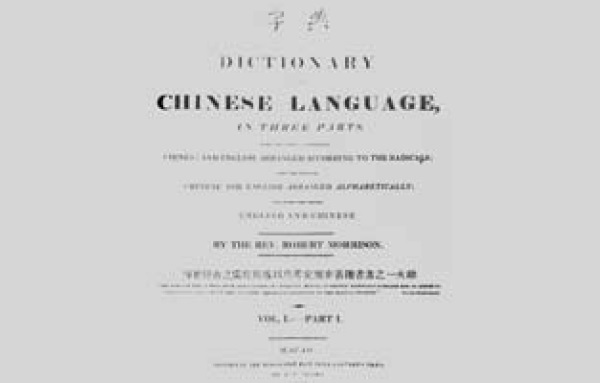
▲Dictionary Volume 1.
Morrison's hard work was due to his clear understanding of the mission entrusted by God. This was his only motivation to stay in China. For a Westerner to decide to learn Chinese writing, it seemed impossible at the time, even almost arrogant. However, if this is not the case, how can we integrate into Chinese culture, touch Chinese hearts, and win Chinese souls for God?
During his more than 20 years in China, Morrison often expressed his lonely feelings in his diary because he was far away from his hometown and separated from his wife and children in Guangzhou and Macau. Reading between the lines, it is not difficult to get a glimpse of the difficulties he experienced, but at every turn, we can see that what Morrison witnessed in his life was not difficulties, but miracles.
Lin Zhiping excitedly flipped through the "New Testament", a photocopy of the New Testament translated by Morrison on the table, and seemed to be able to touch Morrison's pulse. This missionary gave up the good life in his hometown and went to a distant country to devote the rest of his life to strange people. To this day, such a missionary who opened up new territories and laid the foundation for China’s missionary work has not received the attention he deserves. No wonder Morrison sighed, the pioneers have been forgotten, who will inherit the missionary ambitions?
Live history at the second stop
The road of history continues to stretch forward, and the seeds sown by Morrison are still sprouting and bearing fruit.
Light up the fire given by God
About 150 years after Morrison entered China, in Taiwan, Lin Zhiping, then a high school student, was baptized and became a Christian. The "Cosmic Light" magazine, which he served as editor-in-chief more than 40 years ago, has now expanded to care for the whole person. It not only breaks new ground in the field of modern Christian charity and multimedia missionary work, but also becomes a leader.
On the table at the interview site were a small black leather-bound Bible and a "Guidebook for the Bicentenary of Morrison's Mission in China - Touring Exhibition of Historical Pictures". This humble and plainly dressed elder spoke with We sit around the table. Although he has multiple identities - scholar, writer, and lifelong volunteer of "Cosmic Light", Professor Lin also identifies himself as a "preacher." He deeply believes:“Everything I do is for the sake of the gospel, so that I may share in its benefits.” (1 Corinthians 9:23)
Where does a full-time scholar who is engaged in academics and teaching find the time and energy to continue to serve as a volunteer at "Cosmic Light" for thirty-four years? For a man who retired four years ago, where did the confidence and enthusiasm come from to organize such a massive event?
"In the decades since I have believed in the Lord, I have not waited until I understood everything before moving forward. To be honest, I have always moved forward step by step based on the emotions in my heart. Moving forward depends on faith, not rational thinking. It became clear after that. It was the fire given by God that led me to move forward, and it became clear when I looked back that I was not going the right way. It was entirely God’s guidance. Express your honest thoughts directly.
Planning the "200 Years of Morrison's Mission to China" historical photo traveling exhibition also relies on faith. First of all, raising funds is the problem. Everyone agreed that it was a good thing, but the funds still needed to be raised by oneself. Lin Zhiping told the story of two donors. When he wrote to experts and scholars at home and abroad, he received widespread approval and support. The first donation came from an elderly mainland scholar who donated 10,000 yuan. Another retired female preacher in the United States donated $10,000. The elderly man who lived on a pension said, "If I can contribute, you can go ahead and do it." He believed that this was a confirmation from God, so he took a step forward and moved forward bravely.
I can't, God can
In 2006, just as the preparations were in full swing, Lin Zhiping's other half, the famous writer Professor Zhang Xiaofeng, fell seriously ill and was hospitalized. In addition to the burden of work, he also has the responsibility of taking care of his wife. You can imagine the suffering and worry he carries. However, while Lin Zhiping was accompanying his wife in the hospital, he still finished organizing many texts and pictures. His wife's serious illness made him realize how precious time is.
Lin Zhiping said in a relaxed and humorous tone: "If according to the Bible, a person's life span is seventy years, then I only have five years left, which is so little! However, when I think about it, things are rare and valuable. , the less time I have in my hands, the more valuable I am.”
Behind the relaxed words are extremely serious thoughts. In this post-modern culture where materialism is rampant and people are slaves to things, time is money. So, what should we do to exchange time for the treasure accumulated in heaven?
Lin Zhiping cited Morrison as an example. During his more than 20 years in China, Morrison suffered many misunderstandings and criticisms, and suffered moments of weakness in body, mind and spirit. However, how many Chinese souls have been saved by the trend of Western missionary work in China started by Morrison? What profound impact did the missionaries who followed him have on the fields of education, medical care, and social care in modern China?
The Lin Zhiping in front of me was erudite, talkative, wise and full of passion. Once he recalled the adjustment of his mood after retirement, he did not shy away from the sense of loss he had felt. After all, retirement means losing your original position, prestige and salary. Therefore, when there is an opportunity to be hired to develop the "Second Spring", and the conditions are very attractive, we are faced with a battle between heaven and man.
"However, I finally said to myself: Who can afford me? I know very well what I should do in the remaining time." With firm belief, Lin Zhiping operated in just three years And completed large-scale exhibition activities and published a series of books.
In addition to setting goals and going all out, Lin Zhiping once commented on his service in an article "I Can't": "Missionary work itself is a miracle and cannot be relied on people..." Then he quoted Ma Li What Xun likes to say:
"I can't, but I believe God can!"
The third stop writes history
Bertrand Russell famously said: "I am the effect and the cause of history." Why are humans both the effect and the cause of history? Lin Zhiping, who has studied history for many years, has some insights into this.
The cause and effect of history, what does everyone have to do
Everyone inherits the language, habits, and concepts from their grandparents and parents, and they become part of themselves. In other words, the family of origin is part of their own history. History records human activities, which accumulate into culture and evolve into society.
Culture and society are like air. Although invisible and intangible, people need to live in it every day and breathe in and out all the time. A person's values, cultural outlook, and even personality traits all change due to the evolution of culture and society. Therefore, people accept the influence of history and become the effect of history; at the same time, they pass on history, provide materials, guide and shape the future, and become the cause of history.
To commemorate the 200th anniversary of Morrison's missionary mission in China, and to look back at the blood-stained footprints of missionaries of all generations, what use does history have to you and me, and to the Chinese church today?
Look at past examples and find your own position
Learning from the past and understanding the present, by examining historical facts - historical facts, we hope to gain historical knowledge - historical insights.
In the two hundred years after Morrison entered China, how many missionaries went to China to pioneer the hard soil of Christian culture, and how many people dedicated their lives and their families' lives, and even the lives of generations of descendants, to this effort.
At this moment, Lin Zhiping raised some thought-provoking questions:
●Why is Christianity still in such a pitiful situation after many years of spread in China?
●Why did the person who finally led the decision disappear so quickly?
●Why are there so many Christians in the church who are cold and backslidden, lukewarm?
●Why are the life values of Christians so similar to those of the world?
"To put it simply, Christians were absent from the formation process of modern Chinese history, culture, and society. It is the absence in this process that has caused today's history and culture to present a hard soil of atheistic materialism and emphasis on this life. Although Christians I tried sowing seeds hard, but the soil was not right, and naturally I could not bear rich and mature fruits." Perhaps because Lin Zhiping inherited the blood of Hunan people, he could not hide his frank edge in his words, and he often expressed regret and anxiety.
"The church today faces great challenges because we are in a post-modern society. Post-modern philosophy means that there is no God and no absolute truth. It only focuses on the surface of facts rather than the truth of the facts." Lin Zhiping has a serious appearance and a serious temper. Behind his glasses, his eyes that look at the truth through history are extremely sharp and pointed to the point.
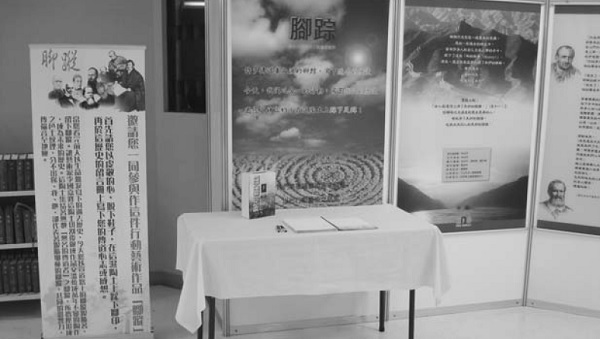
▲After traveling to various places, the clay left the footprints of believers participating in the exhibition all over the world. The guestbook recorded the shock and touching of the soul, inspiring you and me to walk into history, live history, and write history.
"Since people are the effects and causes of history, we must clearly identify the effects of history and bear the cause of history. Think deeply about how to live our lives in history, form future history, and write future history."
While reflecting, Lin Zhiping saw his position: to go deep into the core of culture, cultivate the soil of the gospel, and make Christian culture penetrate every aspect of modern people's lives. This is why he devoted most of his life to spreading Christian culture through words and images, and even after retiring, he spared no effort in producing the "200 Years of Morrison's Mission in China" historical photo traveling exhibition.
The exhibition wall charts have been dismantled, and the symposium was silent. When Lin Zhiping led his co-workers to leave this place and continue their journey to the next stop, the emotion they inspired at Xiaoshidun West District Church will also become a piece of history that affects the world.
Becoming history does not mean the end, it should be the beginning. When Morrison's portrait and Lin Zhiping's voice still echo in our hearts, we should reflect on whether we are also "preachers" and "pioneering pioneers" in the kingdom of God.
Let us seek our position in history from God, rely on God to enter history, live out history, and write history.
